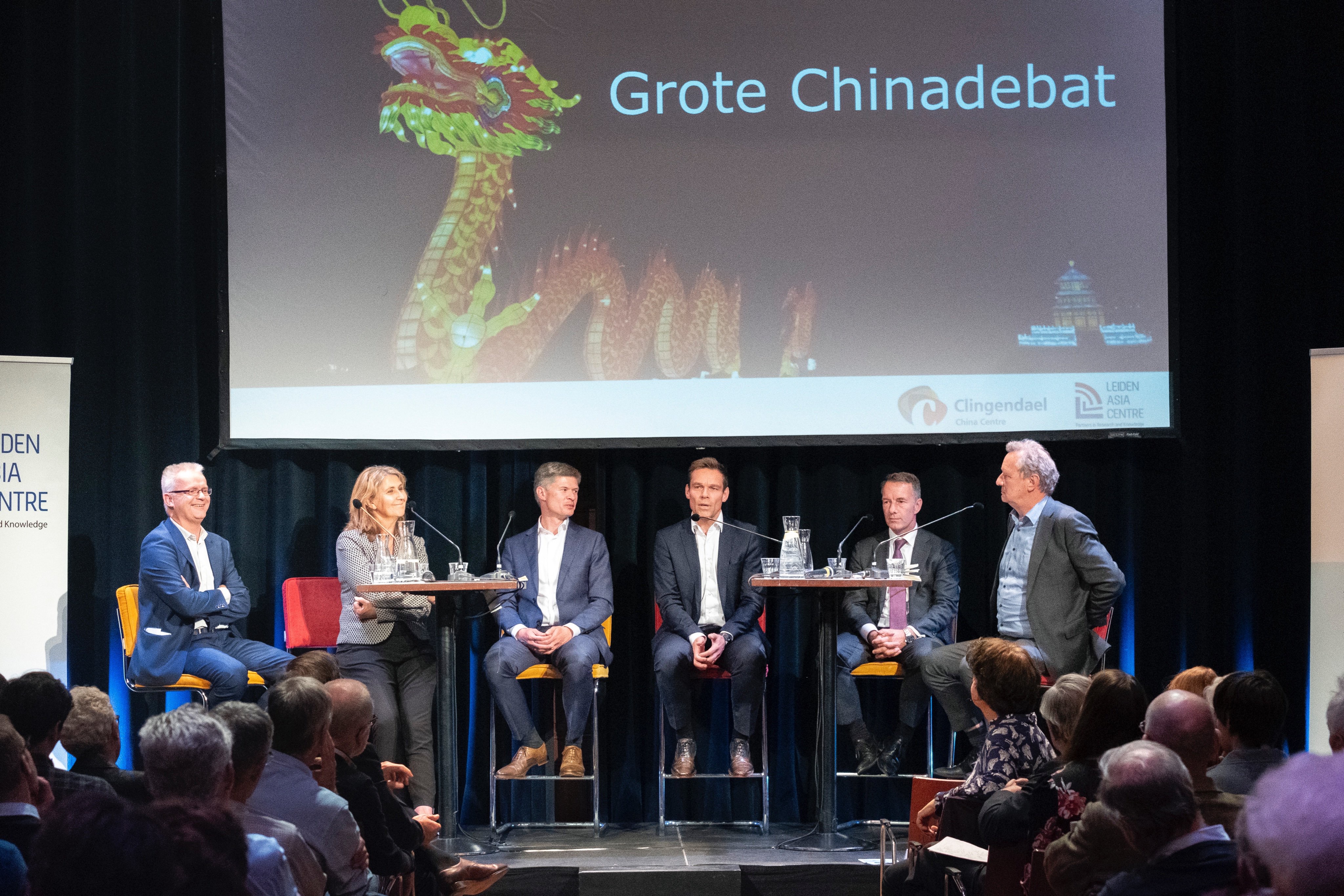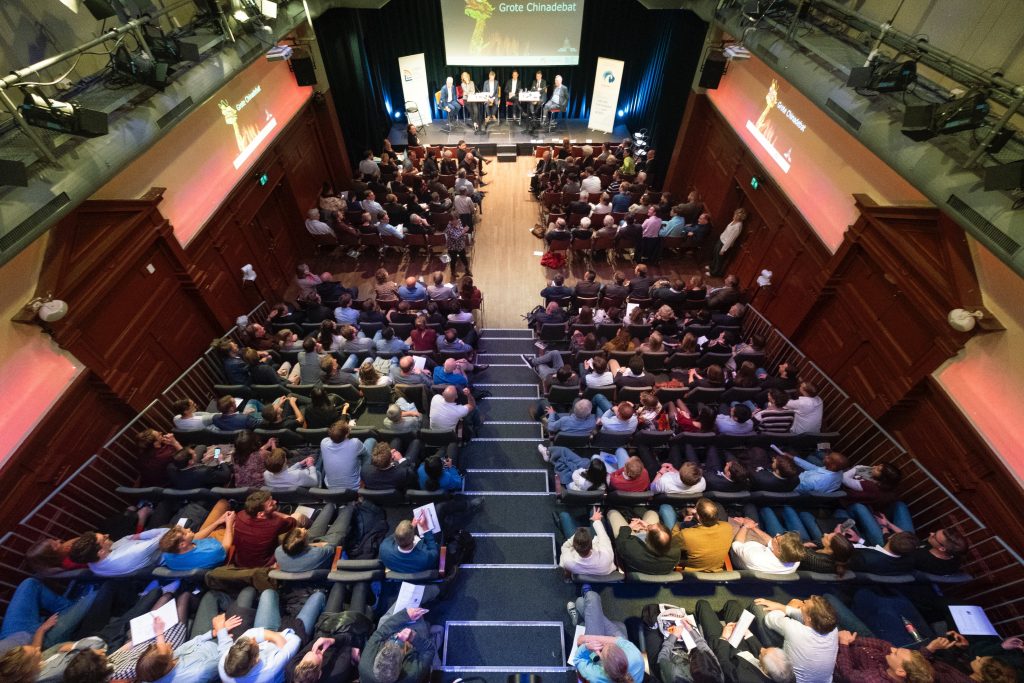What are the consequences of China’s rise for the Netherlands? That was the central question during the Great China Debate in De Balie in Amsterdam in September, organized by the Leiden Asia Centre and Clingendael. Perceptions of China seem either black or white: people describe the country as ‘dystopian’ or as ‘amazing’. Middle ground is hard to find.
We tend to look at China from a European perspective, but what is China’s perception of Europe and the Netherlands? And how does China view itself, both in the past and in the 21st century? China Circle’s Ardi Bouwers also discussed the need to understand the diverging perceptions of political values: the Western world order emphasizes rights, whereas China points to responsibilities.

Watch the keynotes of Ardi and the other participants here (in Dutch), with Arjen van Dijkhuizen (ABN Amro), Frans-Paul van der Putten (Clingendael), and three members of parliament: Bram van Ojik (Green Left), Wybren van Haga (Liberal party) and Martijn van Helvert (Christian Democrats).
For just Ardi’s keynote, click here. And you can also watch the whole debate here.


